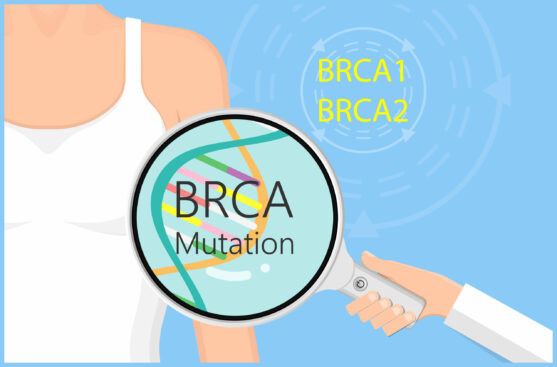Dr Shikhar Kumar, Sr Medical Oncologist, Onco Cancer Care Centre, Hyderabad, explains the latest developments in the prevention of breast cancer
Breast cancer is the most common type of cancer in women in India. It is estimated that 1 in 29 females in India will develop breast cancer during their lifetime.
Breast cancer occurs more commonly in metropolitan cities. There are many reasons for this phenomenon, such as late age of 1st child birth (>30 years), lifestyle changes such as smoking, alcohol consumption etc.
Mutations in the breast cancer susceptibility genes BRCA 1 and BRCA 2 significantly increases the risk of developing breast cancer (by upto 85%). It has been found that 5-10% of all women who develop breast cancer carry a mutation in their DNA for either of these two genes.
 On May 14, 2013, Angelina Jolie broke the news to the world that she had undergone a preventive double mastectomy (surgical removal of both breasts) as she had tested positive for the BRCA 1 gene mutation. The cultural and medical impact of this revelation is well known by now.
On May 14, 2013, Angelina Jolie broke the news to the world that she had undergone a preventive double mastectomy (surgical removal of both breasts) as she had tested positive for the BRCA 1 gene mutation. The cultural and medical impact of this revelation is well known by now.
TIME magazine ran the story on its cover page and the rates of preventive mastectomies in many countries doubled following this announcement.
Here are some commonly asked questions on breast cancer.
Q. Who should get tested for BRCA 1/2 gene mutation ?
There are well defined criteria for getting tested for BRCA gene mutation.
- If one develops breast cancer at an early age of less than 50 years, then BRCA mutation testing is warranted.
- Those who develop the “Triple Negative” subtype of breast cancer are also recommended to get BRCA mutation testing regardless of their age at diagnosis. Consult your oncologist to find out if BRCA testing is right for you.
- If you don’t have breast cancer but have a family history of a 1st or a 2nd degree blood relative who meets the above criteria, you may need to get tested for BRCA mutation. Consult an oncologist or a genetic counsellor.
Q. How is testing for BRCA mutation done ?
The BRCA gene test is usually a blood test. The sample is sent to a lab for DNA analysis. It may take a few weeks before the results are available.
The result may be positive, negative or uncertain. Your oncologist will help you to understand and interpret the results and decide on appropriate follow up.

Q. I am healthy but have tested positive for BRCA 1/2 mutation. Is there anything I can do to reduce my risk of developing cancer ?
Yes. If a woman tests positive for BRCA 1/2 mutation, she is at an increased risk of developing breast cancer, ovarian cancer and pancreatic cancer while males are at an increased risk of developing prostate and male breast cancer.
Women are advised to start screening MRI scans of their breasts on an annual basis from the age of 25 onwards. Mammography can be added to the screening regimen once they cross the age of 30.
There is some evidence that oral drugs like Tamoxifen can reduce the risk of developing breast cancer in women who are BRCA carriers.
Surgical removal of both the breasts is more than 90% effective in reducing the future risk of developing breast cancer in BRCA carriers, however, this decision should be taken only after a thorough understanding of all the implications of this drastic procedure.
In addition, women who are BRCA carriers are advised to undergo surgical removal of their ovaries and fallopian tubes (a.k.a RRSO- risk reducing salpingo-oophorectomy) once they have completed their family, to decrease the risk of developing ovarian cancer.
Q. What are the latest advances in treatment of breast cancer for women who have a mutation in BRCA 1/2 genes ?
A new class of drugs called PARP inhibitors (Poly (ADP-Ribose) Polymerase) have ushered in an era of personalized medicine for women suffering from breast and ovarian cancers.
These drugs act specifically against the cancer cells in women who carry a mutation in either the BRCA 1 or BRCA 2 genes.
The most exciting news in this field is the recent success of a PARP inhibitor called Olaparib in patients who have undergone surgery for their breast cancer. The study, published this year in June in the New England Journal of Medicine , showed that breast cancer patients with BRCA 1/2 gene mutations who were given 1 year of Olaparib after undergoing surgery had a significantly longer disease free survival than the patients who did not receive it.
The side effects of the drug were also mild and easily manageable. This therapy is being hailed as a game-changer for breast cancer treatment and will likely impact the lives of millions of women suffering from breast cancer around the globe.

